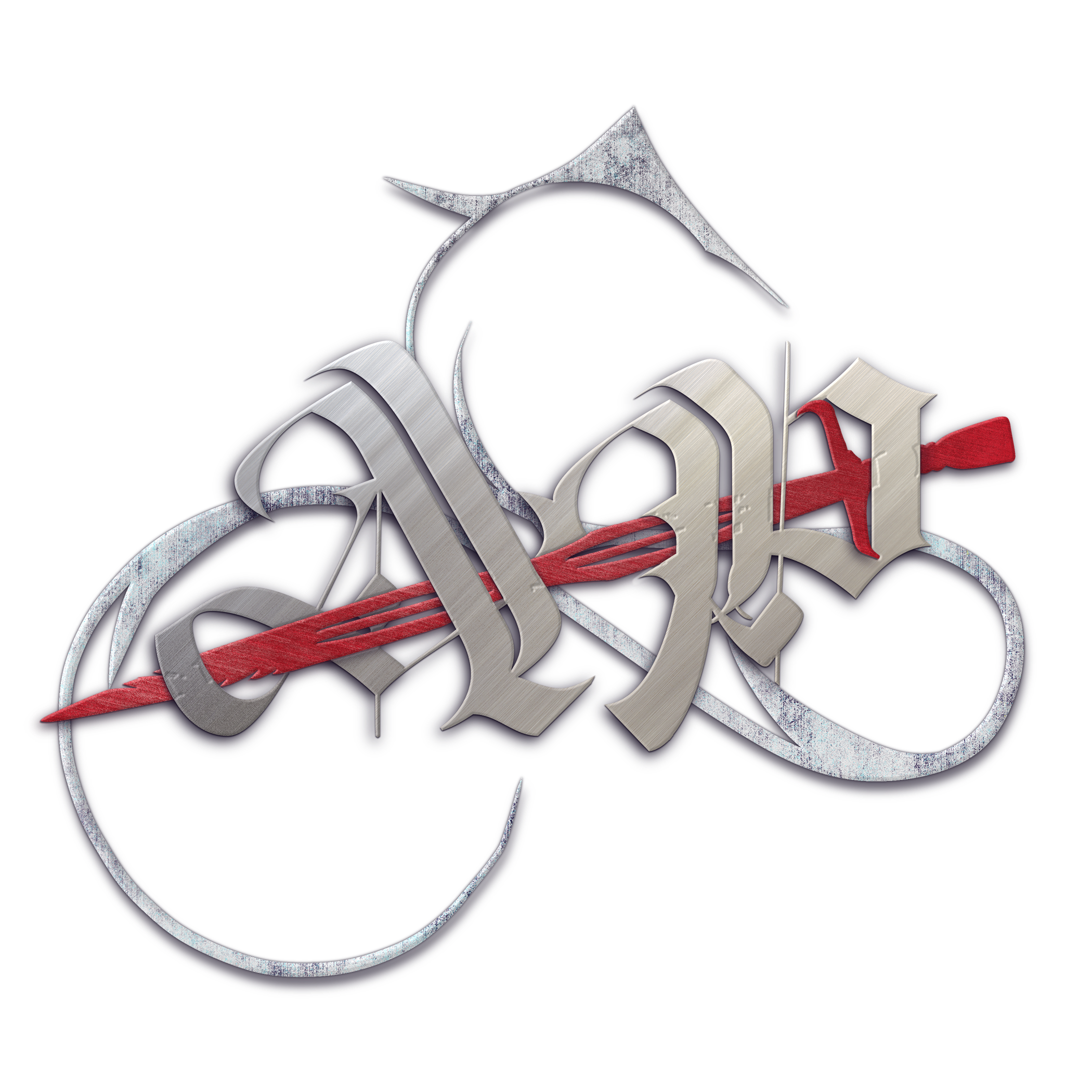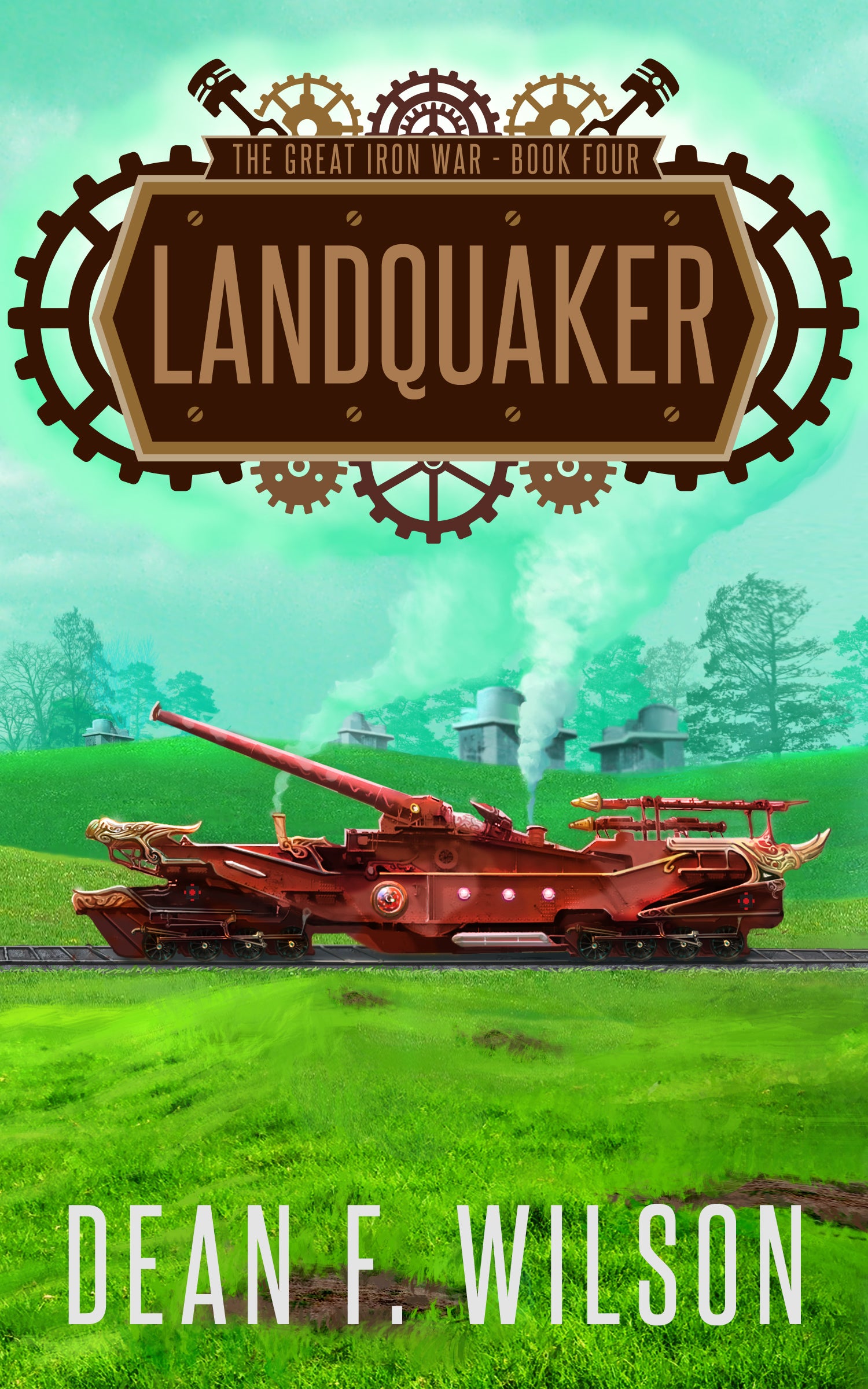It's Book Review Wednesday! Today, I'm thrilled to bring you Landquaker, the fourth book in The Great Iron War series. If you like steampunk, this is the series for you!
(
Note: Read my reviews of
Book 1,
Book 2, and
Book 3 to catch up…)
Landquaker
The Resistance has barely nursed its wounds from the recapture of Blackout, and it is now looking to another, tougher target: the massive steam-powered railway gun known as the Landquaker. They call the vast railroad the Iron Wall, and that mounted barrel is its only sentry. It does not need another.
Blackout was a sitting duck, but the Landquaker is a moving target, and not only one that shoots back, but one that shoots first. The Resistance turns to old allies and new friends, from the land-loving tribes to the land-roving biker gangs. It will need every soldier it can muster.

The Landquaker was designed with a singular purpose: a monstrous gun to hold back a multitude of monsters. Except this time the multitude mans that weapon, and in its hands the land is not the only thing that will quake.
My Review: 4 Stars
I've enjoyed this series immensely since the beginning, and this book is a solid continuation. I'd have to say that each book is getting better than the last!
The good:
- Loved the continued journey of the main character Jacob. He's gone from a rogue to a hero-ish character in a very believable way. Great job!
- Many of the supporting characters (Mudro, Rommond, etc.) are still fascinating, with ever-increasing layers.
- Enjoyed the continued exploration of the world. The bigger it gets, the more I want to learn about it.
- Thrilled to find out more about the "demons" of the world.
- Loved the "Great Train Robbery" feel of it all.
The not-so-good:
- Some of the supporting characters (Taberah, Brooklyn, and the kid) lost my interest a tad.
- Not a huge fan of the "machine spirits" addition. It felt a bit out of place in the highly technological world. But that's just my preference.
- The story didn't move as fast as the previous books. The climax was excellent, but it took a lot of build-up to get there.
All in all, a VERY good choice for steampunk readers--for anyone who enjoys a good action book, really. I can't wait to see what crazy steampunk weapon of mass destruction is slated for the next book/s.
Here's a Taste:
As they headed further into the desert, Rommond looked into the Long Spyglass, scouring the railway in the east. He could not see any sign of the Landquaker, which meant it was either far south or far north, further than the magnification reached. He turned the scope with a creak to either side. He saw Mudro's moving charade in the south, and it looked convincing. In the north, he just saw a haze of sand, and that was reassuring. He turned the spyglass back to the railway, and still could not see anything. He was growing nervous now. If it was in the south, that was great news, but if it was in the north, where Taberah's team was hastening, it was the worst news of all.
He stared into the spyglass for an hour, until sleep began to stare back at him. He had not slept well the night before. No one did on the eve of battle. Then, just as slumber almost had him, he saw something travelling swiftly from the corner of his right eye. He turned the spyglass to see it, and there it was: the Landquaker in all its might and majesty, thundering along those rails, its gun pointing forward, away from the landships. It would not point that way for long.
Rommond watched it grow in size, looking at all the little details, the little swirls and motifs that he and Brooklyn had painted on together, that were Brooklyn's tribal stamp, and his artistic affront to the Regime's minimalistic style. He also saw that the vessel was now overlayed with the emblem of the Regime, that black square upon a red cross, all angular, without a curve in sight. Its red frame was enhanced by rust. Rommond was certain that the rust would not impede its dreadful firepower, or its tremendous speed along those well-maintained tracks. There were regular inspections by smaller trains and carriages, one of which Rommond was counting on Jacob and company to commandeer.
Then the moment came when he no longer needed the spyglass to see the railway gun. There it was on the horizon, a minuscule figure with a monstrous payload. As soon as that moment came, he knew the battle was on. The platoons split apart, changing formation, abandoning the winding serpent for a wall of their own. They kept a reasonable distance from one another, but Rommond knew it would not be enough.
The first shell came down with an ear-rending whistle, and an eye-roasting burst of light. By the time Rommond's eyes adjusted, he saw smoke billowing to his left, where the wrecks of two landships smouldered. He was just glad it was not from his platoon. He could not afford to lose a single one. Not yet.
The second shell hurtled down at the head of Leadman's forces, casting one of the landships into the air. The others swerved to avoid it, and they were glad they were in Brooklyn's newer models then, which did not take so long to turn.
A third and fourth shell landed in quick succession, showing that the Landquaker's barrel had rotated fully into place, allowing full use of the loading mechanism, with all the enhancements that Brooklyn had once made. The shells exploded at the front of the formation, missing the landships, but scouring the land and casting up thick clouds of smoke.
Another shell struck the landship just in front of the trucks bearing the Long Spyglass and Rommond, casting the landship up and spinning it back towards them. Rommond ducked, but the spyglass was struck, sending the barrel spinning off on its own. The back truck toppled over, and the general tumbled into the sand. The front truck stopped, and the driver turned to beckon to him.
“Drive!” Rommond shouted, gesturing forward. “Drive!”
But another shell came down upon the motionless truck, making sure that everyone inside was motionless too. The general sighed and shook his head. Some troops let their compassion overcome their training. They forgot his oft-used words:
Forward is the only direction. For your feet. For your eyes. For your gun.
About the Author:
Dean F. Wilson was born in Dublin, Ireland in 1987. He started writing at age 11, when he began his first (unpublished) novel, entitled The Power Source. He won a TAP Educational Award from Trinity College Dublin for an early draft of The Call of Agon (then called Protos Mythos) in 2001.
He is the author of the Children of Telm epic fantasy trilogy and the Great Iron War steampunk series.
Dean also works as a journalist, primarily in the field of technology. He has written for TechEye, Thinq, V3, VR-Zone, ITProPortal, TechRadar Pro, and The Inquirer
Find the book on Amazon:
http://www.amazon.com/dp/B01ARX21O2/
Or Amazon UK:
http://www.amazon.co.uk/dp/B01ARX21O2/
Read Dean's thoughts on his website:
http://www.deanfwilson.com
Connect with him on Facebook:
https://www.facebook.com/deanfwilson
Or on Google+:
https://plus.google.com/+DeanFWilson
Tweet at him:
https://twitter.com/deanfwilson
 The Landquaker was designed with a singular purpose: a monstrous gun to hold back a multitude of monsters. Except this time the multitude mans that weapon, and in its hands the land is not the only thing that will quake.
The Landquaker was designed with a singular purpose: a monstrous gun to hold back a multitude of monsters. Except this time the multitude mans that weapon, and in its hands the land is not the only thing that will quake.
 The Landquaker was designed with a singular purpose: a monstrous gun to hold back a multitude of monsters. Except this time the multitude mans that weapon, and in its hands the land is not the only thing that will quake.
The Landquaker was designed with a singular purpose: a monstrous gun to hold back a multitude of monsters. Except this time the multitude mans that weapon, and in its hands the land is not the only thing that will quake.

